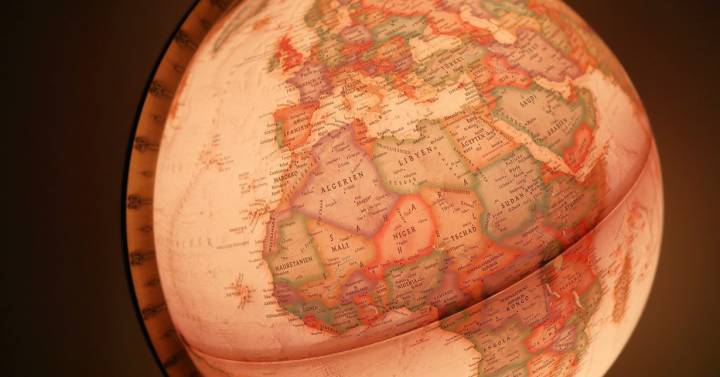Throughout this untimely 2020, 60 years of a unique moment in African history are celebrated. In 1960, for the first time, about twenty African countries joined the United Nations. The independences were driven by external changes, in a new era marked by pressure from the superpowers against colonialism, by various antecedents of independence (especially in Asia), by advances in the principle of self-determination and, at the local level, by the struggle and achievements of African nationalism, among other factors.
MORE INFORMATION
- 100 years ago: Versailles, Germany and Africa
- Steve Biko, a life for liberation
- Africa after the Cold War
It was a time marked by optimism. British Prime Minister Harold MacMillan was blunt in his speech in the South African Parliament in February 1960: "Winds of Change". And he defined it as an unstoppable independence tide. However, later that positive climate would give rise to a deep pessimism.
New nations, rich, marginalized or poor
Of all the independent African countries throughout the 1960s, three had not been part of the French empire: Nigeria, the Belgian Congo, and Somalia (the latter divided between Italy and Great Britain). Except for the first two, one the African jewel of the British crown and the most populated territory on the continent, and the other, rich in mineral resources, the rest were marginalized and poor or reduced in size.
In September 1958 Guinea Conakry had voted not to remain tied to the French Community, a restructured attempt at survival of the French Empire, with a history since 1946, in a challenging era with European supremacy questioned from various fronts, especially from the term from World War II.
As the V French Republic stipulated the possibility of its members to be able to get away from the body, throughout 1960, 15 countries followed suit. The bloody evolution of the Algerian liberation war, together with the bad press against France for the atrocities committed, tipped the balance around a gallophobia that generated disaffections within the French Community for a France whose prestige had remained very weakened as a result of the suffering during the Second World War and the occupation. In the rest of the French territories, with the exception of Madagascar, independence was peaceful and negotiated. The problems would come later.
Nigeria's independence, on October 1, was also a product of the negotiation and did not lead to great complications despite the size of the country and its population. At prominent conferences (some included London as headquarters) it was agreed how the path towards independence should be set. For example, the Federation of Nigeria was created in 1954, conferring a greater degree of autonomy on the regions, in an attempt to balance the delicate ethnic balance. The arrival of independence seemed to augur years of prosperity, since the ruling class was seen prepared and committed, especially by Nmandi Azikiwe, leader of the main nationalist political party and first president of the Federation. However, the first outbreak of military coup d'etat overthrew Azikiwe, in 1966, and caused a critical situation for federalism. The following year the crisis broke out when the oil-rich Biafra declared secession, starting a devastating war of more than two years and whose images traveled the world. The intervention of the military would henceforth become a constant in local politics, as in other countries on the continent at the time.
The former Belgian Congo contrasts with the previous cases. The emancipation was hasty and without much coordination, which quickly frustrated the optimism present at the transfer of power ceremony attended by the Belgian monarch Balduino, on June 30, and in which the Congolese leader Patrice Lumumba sentenced: "The independence of the Congo is a decisive step towards the liberation of the entire African continent." The country was held hostage by the factional contest between the nationalist cadres and by a secession in a rich mining province, Katanga, promoted by the former metropolis, among other actors. The climate of instability made it possible to forge the assassination, at the hands of the conservative and neocolonial forces, of Lumumba, in January 1961. Thus the independence cause had its first great martyr.
Balance of an unstoppable eddy
The year 1960 marked a before and after around the race for the liberation of Africa. That year closed with the proclamation of Resolution No. 1,514 (XV) of the United Nations General Assembly on the granting of independence to colonial countries and peoples, on December 14. The text of the regulation reads: "The lack of preparation in the political, economic, social or educational order should never serve as a pretext to delay independence."
The decade just started marked an unstoppable whirlpool in pursuit of independence: from 1961 to 1968, 14 countries saw the light of day. But there were still several colonies to achieve decolonization, in particular those that carried out long liberation struggles against Portugal. That would be another chapter, in the 1970s, and even other territories, such as Namibia, had to wait even longer to be free.
However, compared to 1960, 1970 was very different. Optimistic projections had been left behind as military coup and the one-party system modality broke out in several African countries. In short, the wishes for development were left on paper.
Omer Freixa is an Argentinean Africanist historian. Teacher and researcher at the Universities of Buenos Aires and Nacional de Tres de Febrero.

